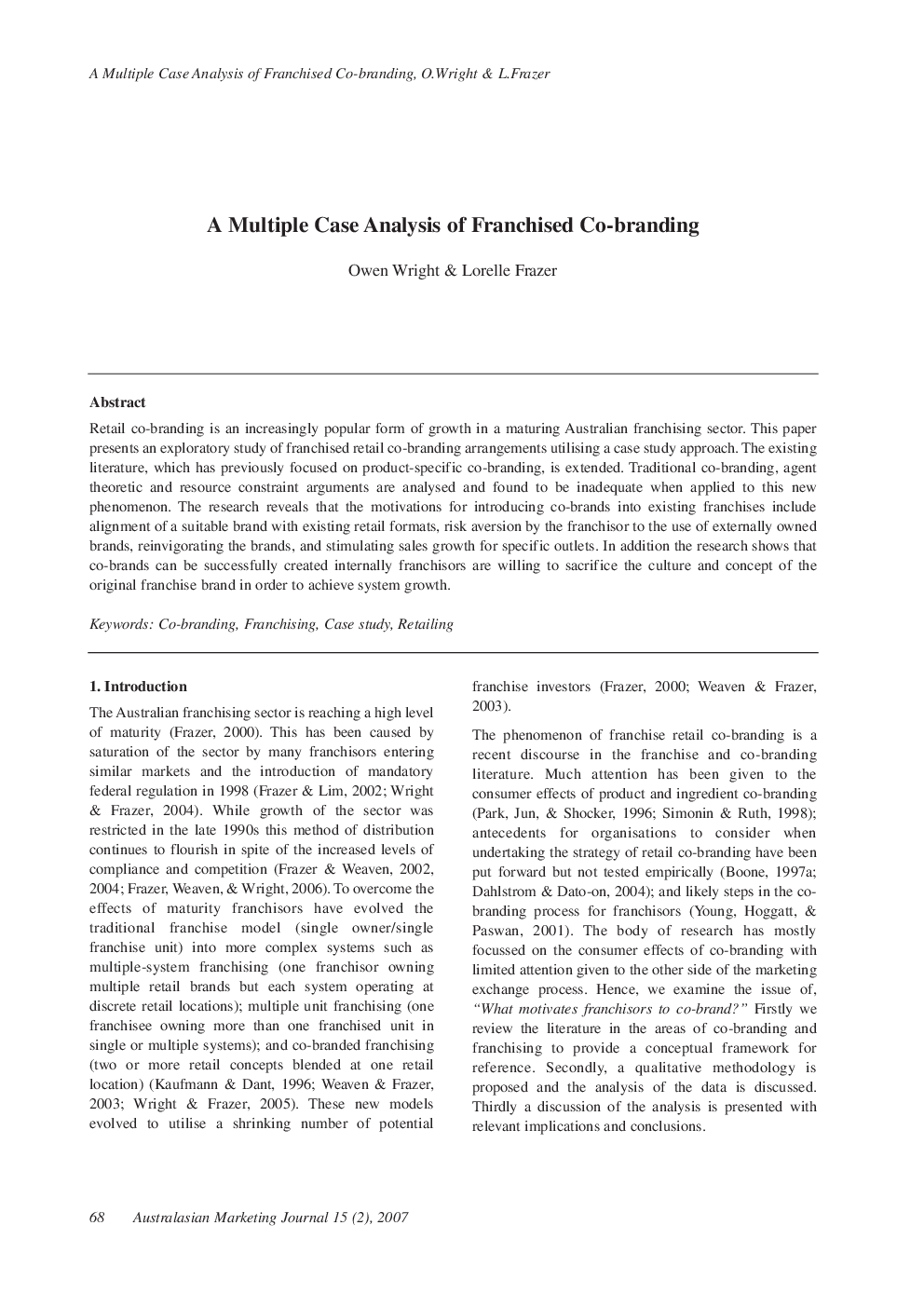| Article ID | Journal | Published Year | Pages | File Type |
|---|---|---|---|---|
| 1027302 | Australasian Marketing Journal (AMJ) | 2007 | 13 Pages |
Retail co-branding is an increasingly popular form of growth in a maturing Australian franchising sector. This paper presents an exploratory study of franchised retail co-branding arrangements utilising a case study approach. The existing literature, which has previously focused on product-specific co-branding, is extended. Traditional co-branding, agent theoretic and resource constraint arguments are analysed and found to be inadequate when applied to this new phenomenon. The research reveals that the motivations for introducing co-brands into existing franchises include alignment of a suitable brand with existing retail formats, risk aversion by the franchisor to the use of externally owned brands, reinvigorating the brands, and stimulating sales growth for specific outlets. In addition the research shows that co-brands can be successfully created internally franchisors are willing to sacrifice the culture and concept of the original franchise brand in order to achieve system growth.
